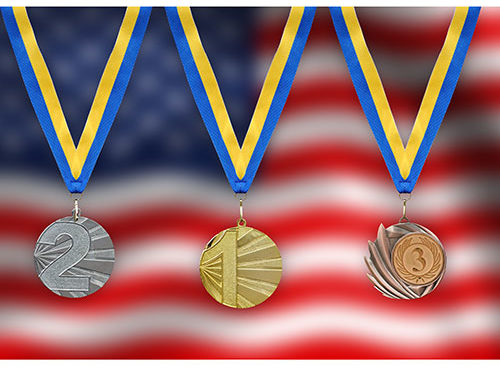At the 2008 Olympics, China led the men’s team preliminaries by over five points ahead of Japan, with the U.S. about nine and a half points behind down in 6th place. The margin of victory after the team finals was even more astounding, with China winning by more than SEVEN full points over Japan, and the U.S. finishing over TEN points behind for the bronze. Perhaps the only other comparable display of team domination was at the 1972 Olympics, when Japan beat the Soviet Union by just over seven points and third place Germany by eleven points. Regardless, China’s performance in 2008 was one of the most powerful and dominant of all time.
Here in Rotterdam, China leads Japan by just one point and the U.S. by about five and a half points.
Conclusion: Both Japan and the U.S. have closed the gap considerably on China, and Japan in particular has a very legitimate shot at beating the Olympic champions.
If we consider just how many routines were missed by China and Japan in the preliminaries, it’s very difficult to predict which team will come out on top. Both teams had some serious struggles on both floor and pommel horse; Japan had two missed pommel horse routines and three missed floor routines, plus another one with a large stumble. China had one missed routine on pommel horse and multiple other struggles on some pommel horse routines and tumbling passes on floor.
Of the top three teams, the U.S. perhaps performed to the best of their ability, though they certainly didn’t have a perfect day. They missed one routine on p-bars, one routine on floor, and one routine on rings… and did have some errors on other key routines that allow them plenty of room for improvement. Just as with the U.S. women, the men should be incredibly proud of their performance during the preliminaries, especially from such a young and inexperienced group of guys. They established themselves as a very serious medal threat and finished ahead of some very strong teams from Great Britain, Germany, Russia, and Korea. They also have two strong contenders in the all-around finals (Horton and Leyva), three event finalists (Legendre on floor and Leyva and Brooks on high bar), and one reserve (Brandon Wynn on rings).
Perhaps the biggest accomplishment of this U.S. team during the preliminaries was hitting ALL FIVE pommel horse routines – a very promising outcome considering four of the five gymnasts would undoubtedly consider pommel horse to be by far their weakest event. Although it was still the team’s weakest event here, they finished just over two points behind Japan on pommel horse and just under two points behind China – half the margin by which they trailed these two teams in Beijing on the same event. Since pommel horse is the biggest reason why the U.S. men are widely considered to be on a different level than these two teams, this has to give the U.S. men the confidence that they can, in fact, give China and Japan a serious scare if they rock the team finals. It’s going to take an all-out, 18-for-18 kind of performance that will require all six of these guys to be on fire at the same time, but if they generate the kind of atmosphere they did in Beijing, some really exciting things could happen for these American men two days from now. They’ll need some help from China and Japan to have a chance to win, but they do have one significant advantage over both of these teams…they’re the underdogs.



Leave A Comment